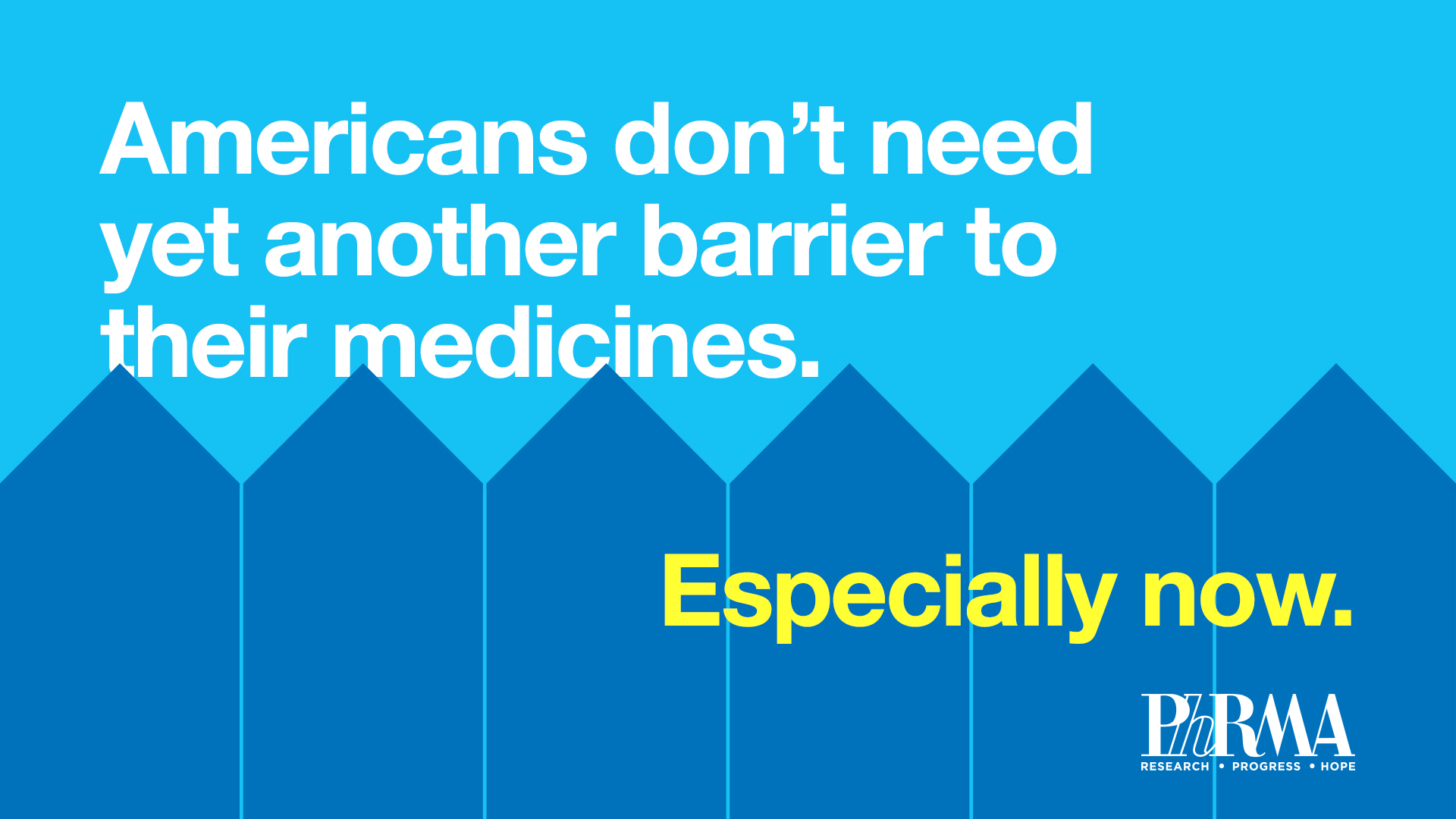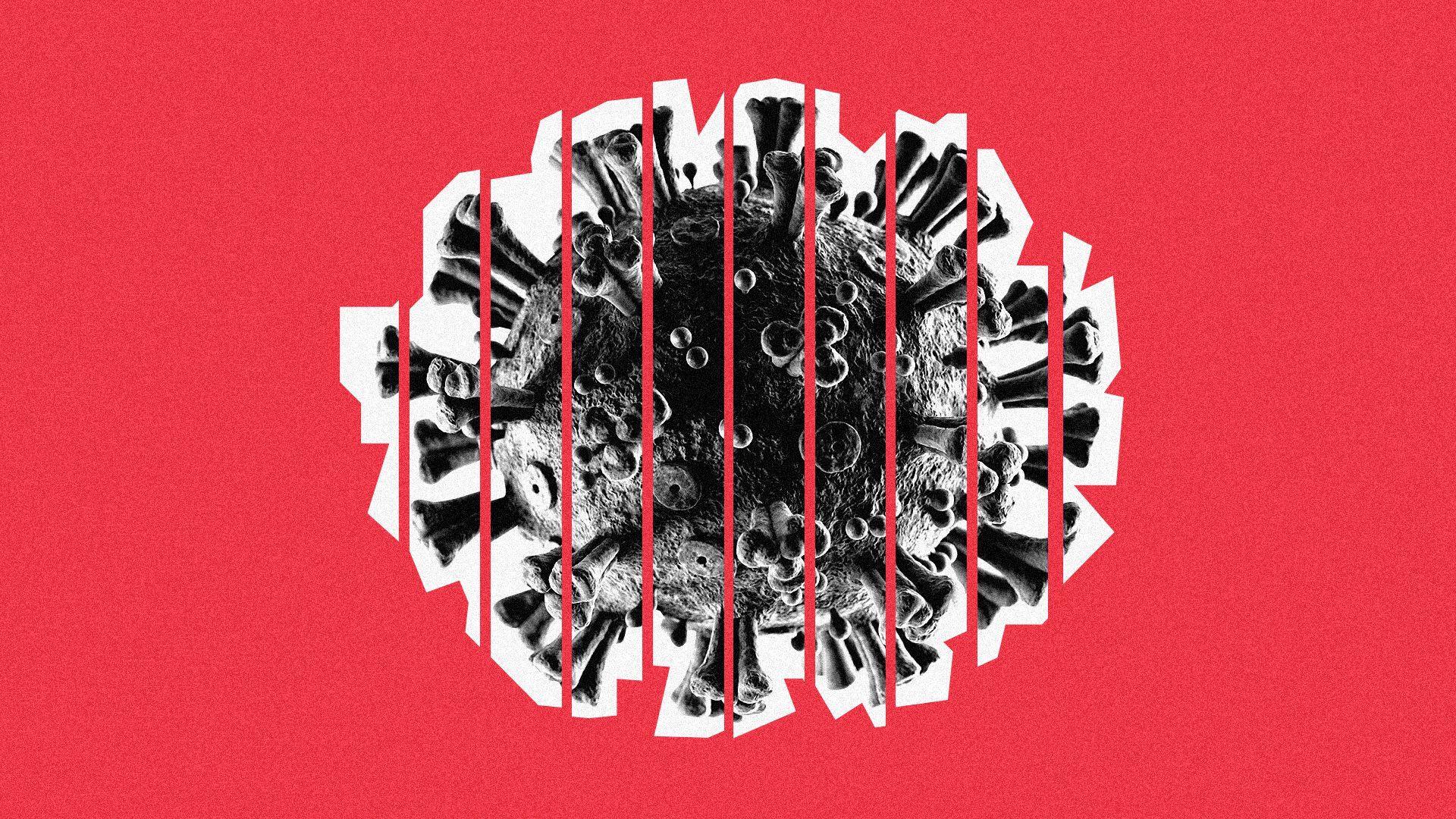| | | | | | | Presented By PhRMA | | | | Vitals | | By Caitlin Owens ·May 04, 2021 | | Good morning. Join Axios' Sara Kehaulani Goo and Tina Reed Thursday at 12:30pm ET for Vitals Check-Up, a new monthly event series spotlighting pressing health care issues. Register here. Today's word count is 1,012, or a 4-minute read. | | | | | | 1 big thing: The next vaccine push |  | | | Illustration: Aïda Amer/Axios | | | | The U.S. vaccination effort is preparing to lean on employers, houses of worship, community organizations and even home-based delivery in order to reach the people who haven't yet gotten vaccinated, Axios' Tina Reed reports. Why it matters: Shots will need to become much more easily accessible and trusted organizations will have to help overcome vaccine hesitancy in order to keep America's vaccination progress going as demand begins to wane. The big picture: Some folks jumped at the chance to get a vaccine and others never will. - "What we've seen over time is a smaller and smaller 'moveable middle" as people moved into either of these two buckets," said Sree Chaguturu, the chief Medical officer of CVS Caremark.
Driving the news: CVS Health announced last week plans to introduce employer-based vaccination clinics through its "Return Ready" program. A recent KFF study found nearly a quarter of Americans would be likely to get the vaccine if was available at their workplace. - SCAN Health Plan, a non-profit Medicare Advantage HMO in California, teamed up with a startup, MedArrive, to deliver vaccines to the homes of patients who physically can't leave to go get a shot — or who are simply afraid to.
- "Human psychology is funny, and sometimes, just the fact that someone is willing to come to your home and explain it to you and be there with you can be the difference between taking it or not taking it," SCAN CEO Sachin Jain said.
"We need to be more creative about meeting people where they physically are," said Erica Johnson, chairwoman of the American Board of Internal Medicine's infectious diseases specialty board and Johns Hopkins assistant professor of medicine. - Regional pharmacies and mobile clinics could reach adults who are homebound or in rural areas, while churches could offer trusted and convenient vaccine sites.
The bottom line: "Different access points mean different things to different people," Chaguturu said. |     | | | | | | 2. The growing global pandemic divide |  Data: Our World in Data; Chart: Axios Visuals We seem to have arrived at a fork in the pandemic: Pockets of the rich world are beginning to move past COVID-19, while some less-fortunate countries are facing greater danger than ever, Axios' Dave Lawler reports. Consider this: The World Health Organization said yesterday that more cases had been recorded globally over the last two weeks than in the first six months of the pandemic, driven largely by an unprecedented surge in India and the ongoing onslaught in Brazil. - India is now recording around 3,500 deaths per day, and the true rate could be two to five times that many, according to University of Michigan epidemiologist Bhramar Mukherjee.
In Europe, a fourth wave has begun to subside. Governments hope it's the last one they'll face, and they're preparing for life after the pandemic. The state of play: 28% of Germans have now had at least one dose, up from 12% one month ago. - In the U.S., where 45% of the population has been vaccinated, demand is now a bigger issue than supply.
- In India, only 9% of the population has had one dose.
Meanwhile, the European Commission today proposed a plan to ease travel restrictions for tourists who have been fully vaccinated. The bottom line: The world is opening up to those with access to vaccines. But that doesn't mean the pandemic is anywhere near over. |     | | | | | | 3. Cost of care creeps with consolidation | | Two studies released yesterday in Health Affairs add to the growing body of evidence that when hospitals acquire physician practices, the cost of care goes up. The big picture: Providers are increasingly practicing as part of hospital systems rather than independently, a trend that will likely continue to drive up U.S. health spending. What they found: One study found that the odds of a patient receiving an inappropriate MRI referral increased by 20% after a doctor became employed by a hospital. - Most patients then received the procedure at the hospital that employed the referring doctor.
The second study found the monthly number of diagnostic imaging tests and lab tests performed in a hospital setting among Medicare beneficiaries increased after physician practices were acquired by health systems. - The number of imaging tests and lab tests in non-hospital settings decreased, and Medicare reimbursement rates for each kind of test increased.
The bottom line: An increase in testing volume and price are just two more ways large hospitals' voracious appetites for consolidation drive up the cost of care. |     | | | | | | A message from PhRMA | | Americans don't need another barrier to their medicines | | |  | | | | We have to lower what patients pay for their medicines. We also have to make sure they are getting the medicines they need. The challenge: H.R.3 forces a choice between one or the other. There's a way to do both, but H.R.3 isn't it. Get the facts. | | | | | | 4. Mental health risks rise for transgender youth |  Data: UCLA/Williams Institute; Chart: Sara Wise/Axios Medical experts and pediatricians are worried about a new rash of mental health crises among transgender kids, due to the dozens of bills states have introduced to criminalize gender-affirming health care, Axios' Marisa Fernandez and Orion Rummler report. Why it matters: Tens of thousands of trans youth are at risk of losing health care from the proposed bills, the Williams Institute estimates. The big picture: 20 states this year have introduced bills to criminalize gender-affirming healthcare for transgender kids, in some cases making it a felony offense for doctors and parents to provide puberty blockers or surgery. - The bills — including the high-profile measure that's now the law in Arkansas — often rely on inaccurate medical claims about puberty blockers and the risks of gender transition procedures.
What's happening: Some doctors in these states fear the bills will leave in limbo patients who are undergoing gender-affirming treatment. - "I see multiple patients daily that are suffering with depression and suicide ideation and suicide attempt and anxiety, and my fear is that if we deny them this evidence-based treatment, we're only going to see massive more patients come to the emergency room," Jesse Martinez, a doctor of psychiatry at Children's of Alabama, said.
|     | | | | | | 5. Catch up quick |  | | | Illustration: Aïda Amer/Axios | | | | The Food and Drug Administration is expected to authorize the Pfizer vaccine for teenagers ages 12 to 15 by next week, AP reports. CVS and Walgreens, two pharmacy chains that have worked with the federal government to administer COVID-19 vaccines, wasted more doses than most states combined, per government data obtained by Kaiser Health News. Maryland will offer a $100 incentive to any state employee who gets vaccinated for COVID-19, Gov. Larry Hogan announced Monday. New York City will resume its 24-hour subway service on May 17, Gov. Andrew Cuomo announced Monday, along with fast-tracking the city's plans to fully reopen businesses. Florida Gov. Ron DeSantis (R) on Monday signed an executive order to end all local emergency orders relating to COVID-19, effectively halting enforcement of restrictions across the state, the Miami Herald reports. |     | | | | | | A message from PhRMA | | Congress: Here's why H.R.3 isn't the solution to lower cost drugs | | | | Americans don't need another barrier to their medicines. We have to lower what patients pay for their medicines. We also have to make sure they are getting the medicines they need. H.R.3 forces a choice between one or the other. There's a way to do both, but H.R.3 isn't it. Get the facts. | | | | | | Axios thanks our partners for supporting our newsletters.
Sponsorship has no influence on editorial content. Axios, 3100 Clarendon Blvd, Suite 1300, Arlington VA 22201 | | | You received this email because you signed up for newsletters from Axios.
Change your preferences or unsubscribe here. | | | Was this email forwarded to you?
Sign up now to get Axios in your inbox. | | | | Follow Axios on social media:    | | | | | |







No comments:
Post a Comment